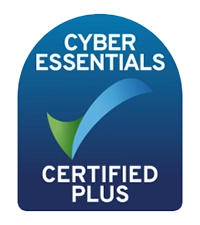When making decisions about working from home, it is important employers and employees fully discuss the pros and cons of remote working and evaluate the following:
- Which roles can and cannot be done from home and why?
- Who may or may not want to work from home and why?
- Any concerns from both parties and how best to handle them.
Working from home sounds simple. However, the pandemic has created many issues that businesses need to address if there is to be a more permanent shift to remote working. Below we share our top tips on what to ensure your business is considering regarding home working:
Equipment & Technology
Employees require the right technology to do their jobs efficiently in the office or at home. Not having the right systems and equipment in place could result in IT related issues and a lack of staff productivity. To help avoid stress brought on by IT failure, we recommend employers check their employees have a suitable remote workstation & internet connection. Also, ensure that the remote working environment is conducive to a good and safe working environment. Preferably with a desk and appropriate office chair, rather than a kitchen table and chair. Employers must have clear work from home policies in place which they have shared and agreed with their staff when considering remote working. A summary of things that should be included are:
- Any additional equipment needed i.e., webcams, headsets, printers.
- Supply of ink, paper and stationery if required and how to replenish.
- How to report IT issues.
- Review the level of support needed and the speed that support is delivered.
- How the employers will monitor workload.
- How the employer will communicate with staff members and team meetings.
- Setting the expectations for the home working environment – desk vs table.
- Backgrounds for team meetings / webcam footage / appropriate dress.
- Ensuring the health and safety of the individual and their working environment is reviewed.
- Having appropriate rules in place around data protection and cybersecurity.
- The agreed period of review to check how the IT and the work from home is working.
Insurance
Employers should check that their insurance covers their staff equipment when working from remote locations, customer sites, or homes.
Wellbeing
In a technology-driven world and the pressure people experience from a work or social perspective can damage mental health and well-being. Many people have struggled over this last year in particular. As a responsible organisation, it is very important to understand and not underestimate the mental health of your employees. By putting in place a mental health policy and some simple measures to gauge the wellbeing of your staff, you are showing your employees that they are valued, and you take your corporate responsibilities seriously. As a minimum, you should regularly do the following:
- Have weekly catchups with your staff to discuss work and home life balance and any issues, encouraging open and frank discussions.
- Observe any behavioural / mood changes and question them on what is happening.
- Create a trust relationship with your employees that allows them to feel comfortable opening up to you about any struggles they are facing.
- Offer suitable and practical help, guidance, and support if they are struggling.
- Let them know they can always discuss anything with you in a confidential manner.
Want to find out more about how to create a better remote working environment for your staff? Get in touch by calling us on 0117 2020 200 or emailing us at [email protected].













